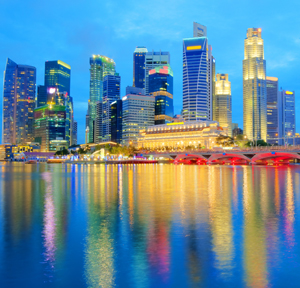Market Research
Singapore Replaces Tokyo As The Most Expensive City In The World - Study

The latest EIU "Worldwide Cost of Living" survey shows that Singapore is now the most expensive city to live in 2014, replacing Tokyo which has slid down to number six.
Singapore is the most expensive city in the world, followed by Paris, Oslo, Zurich and Sydney to form the top five, according to the latest "Worldwide Cost of Living Survey" by the Economist Intelligence Unit.
Using New York City, the 26th most expensive city, as its base, the biannual report surveys the prices of products and services in 131 cities worldwide, covering areas such as food, transport, clothing, domestic help and private schools, among others.
Singapore's rise to the top of the list was attributed to the strong Singapore dollar, which has increased by 35 per cent in the past ten years, and a higher reliance on imports. According to the report, because Singapore depends so much on other countries for water and energy supplies, it is the third most expensive destination for utility costs.
The survey is among a number of such rankings of cities; earlier this week, global property firm Knight Frank issued its latest report on cities considered most desirable for wealthy individuals. (See here.)
Transport expenditure in the city-state is also thrice higher than New York, with local car buyers required to pay for registration duties and excise taxes that eventually more more than double the vehicle's actual market price. The government also implements a strict vehicle permit policy in a bid to control pollution and congestion.
The most expensive city in the previous year, Tokyo, had slid to sixth place, alongside Melbourne, Caracas and Geneva, due to the weaker yen. Conversely, the EIU identified Mumbai, India as the least expensive city to live in 2014.
"Mumbai's title as the world's cheapest city is a reflection of the structural factors that define price within the subcontinent. Although India has been tipped for future growth, much of this is driven by its large population and the untapped potential within the economy," the report noted.
The other four in the bottom five are Karachi in Pakistan, New Delhi, Kathmandu in Nepal and Damascus in Syria.